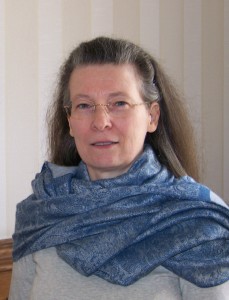As a Staff Tutor, my time each week is divided between working in the OU in Scotland office and the Music Department, bringing a nicely balanced variety to the week. It’s a mixture of, on the Scottish side, being a point of contact for students studying Arts modules across Scotland and mentor and professional developer for the Associate Lecturers who are their allocated tutors, in addition to devising public engagement activities, and on the Faculty side, having contact with Module Teams in the Music Department and AA100, as well as continuing with my research and supervising PhD students.
October sees the start of the new academic year, so it’s a busy time in the national office and the culmination of all the preparation that we’ve worked on throughout the summer. Our small Arts team of three staff has ensured that our students are allocated to named tutors and the tutorial timetables have been agreed with ALs, and now we can start on the smaller process of doing this all again for the February presentations of AA100 and A105.
Good luck and success to all of our students for the coming year!
On the other side of my job, I continue to be an active researcher. My main research interest is liturgical music, particularly from the fifteenth and early sixteenth centuries, and I welcome enquiries from prospective research students in this area.
I’m currently working on a sizeable edition, namely The Complete Works of Robert Johnson (d. c. 1560), to be published by Musica Scotica as part of the series of scholarly editions. This will be the first collected edition of Johnson’s works, sacred and secular, vocal and instrumental, so it’s an exciting project to be working on. This year I’ve been fortunate to have the support of an Arts & Humanities Small Research Grant from The Royal Society of Edinburgh that’s allowed me to visit libraries in London, Oxford, and Cambridge to consult manuscripts containing Johnson’s works. Some of the books, however, are now very fragile because of the nature of the paper and ink used. In these cases, I’ve relied upon the DIAMM database which contains digital images of the most fragile books.
Although my main interests lie in the fifteenth and sixteenth centuries, I’m one of the of co-investigators on the Listening Experience Database, a collaborative AHRC-funded project between The Open University Music Department and the Royal College of Music. For this, I’m investigating the musical tastes of some members of the Stirling-Maxwell family, well-known in Glasgow for several centuries and still visible today through the family home at Pollok House in the southside of the city. The main task for this piece of research involves reading through the archive of letters between the brother and sister, William and Hannah Stirling, housed in the Glasgow City Archives. Later this month, I’ll have privileged access to the scrapbooks belonging to Hannah, still kept by the family at Pollok House, to find out more about her concert-going habits.

